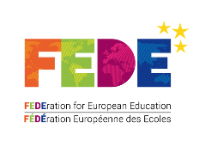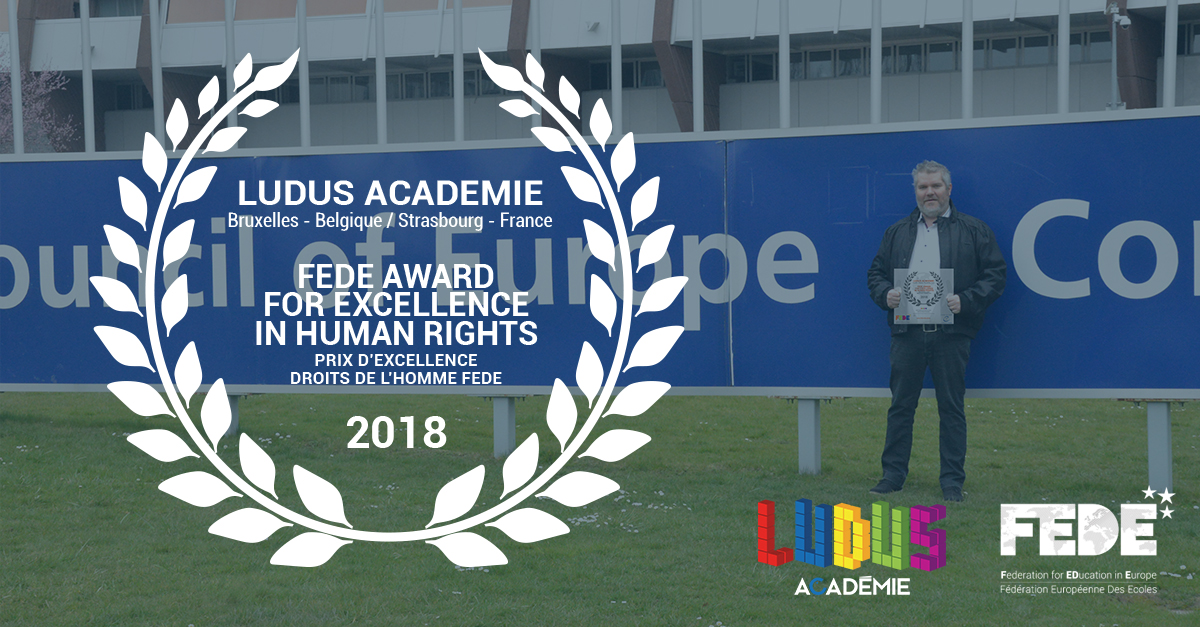Europe in Your Pocket is a game that promotes European values. Designed and created by four students from Ludus Académie, the game, which is at the same time fun and serious, has attracted the attention of the FEDE – and in the best possible way: the Federation awarded it its 2017 human rights prize. In the interview below, Jérôme Hatton, director and founder of Ludus Académie, tells us about the origins and workings of this original game.
How did ‘Europe in Your Pocket’ start?
The FEDE is playing an active role in creating a vast, shared European space for higher education. It is also promoting European educational developments and improving the transparency and international recognition of educational qualifications. As part of its work, the Federation encourages mobility and international exchanges, facilitates meetings and dialogue between cultures, and is striving to develop a true sense of European citizenship. It is on this basis that we have designed and introduced our highly original degree programmes.
What do you mean by ‘highly original’?
Our Foundation, Bachelor’s and Master’s degrees include three modules that help students to develop the vision needed to construct a humanist, 21st-century Europe. However, the sheer quantity of history to learn, the huge number of dense treaties, historical national figures and so on – which are all part of the European Union’s fascinating evolution – intimidate our students in the run-up to the exams. That’s why we thought up ‘Europe in Your Pocket: The Game’. It’s a serious game that allows students to learn basic facts about Europe and to check their knowledge, but that also, because it’s a game, allows them better to retain the information they have learnt.
So basically, you want the game to improve both knowledge and appreciation of European values?
Exactly! ‘To play is to learn […] to live together, to get to know the world around us, […] to work together.’ Ludus Académie has appropriated this statement by Arvid Bengtsson because it really expresses the ethos of our teaching methodology, which all our teachers endorse. The students who created the game (Louis Stadelmann and Guillaume Foubert from our Strasbourg campus, and Hugo Vander Heyden and Jean-François PORTO from our Brussels campus), share the same conviction. Our students and teachers have a single goal: promoting the values of the European Union!

